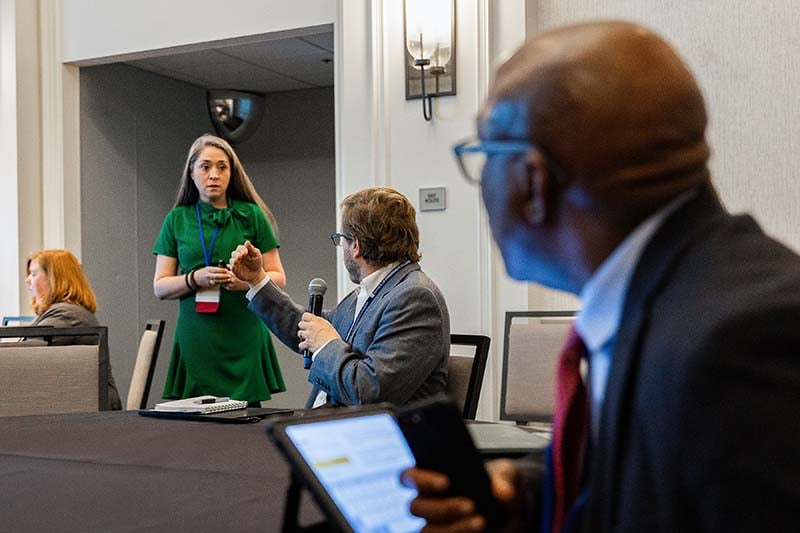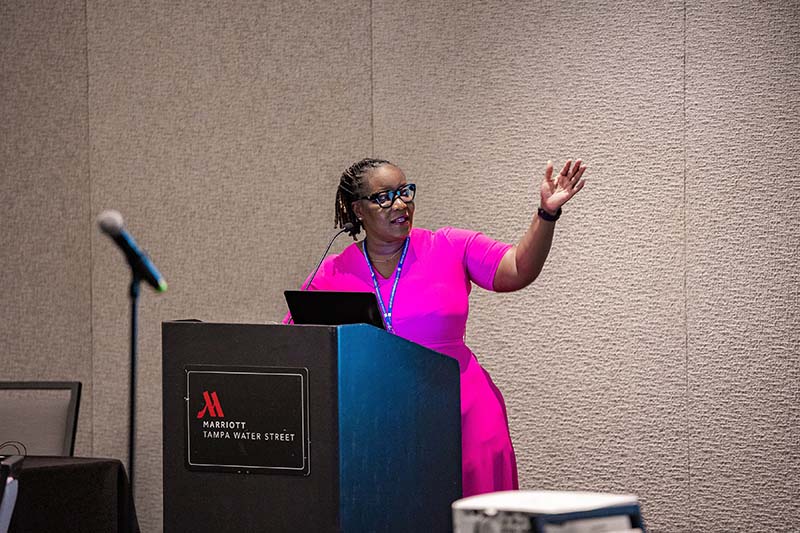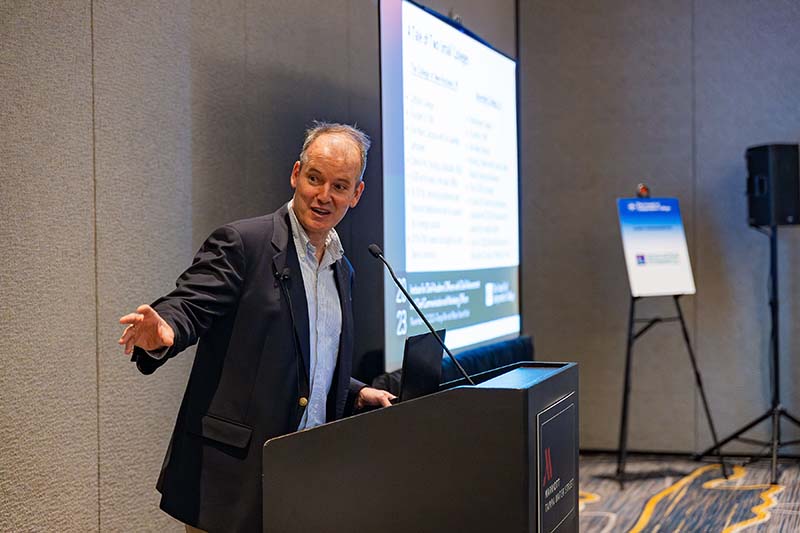Independent higher education has a powerful history of success, creativity, innovation, and openness to diverse perspectives, and CIC member institutions reflect these values. CIC strives to acknowledge and respect the diversity in members’ missions, values, and student and faculty makeup as we work to support college and university leadership, advance institutional excellence, and enhance public understanding of independent higher education’s contributions to society.
The 2023 Institute for Chief Academic Officers CIC seized this important moment in independent higher education. The theme, Storied. Independent. Together., allowed CIC members to amplify their authentic and diverse voices. Chief advancement and communication/marketing officers were also invited to attend as these roles play an important role in telling an institution’s story. Inspiring plenary sessions, engaging concurrent sessions, and collaborative interactive seminars allowed participants to exchange best practices and tell their stories—all in an energizing environment of mutual support, encouragement, and community.
The Institute for Chief Academic Officers included chief advancement and chief communication and marketing officers. Special pre-Institute workshops for new chief academic officers and for those in their third or fourth years of service were also offered.
Plenary Sessions
Plenary sessions at the Institute for Chief Academic Officers focused on storytelling and the importance of building a narrative with the right supporters and messaging.
The opening plenary session, “A Fireside Conversation on Independent Higher Education and Its Proposition, Achievements, and Challenges,” featured Dan Porterfield, president and CEO of the Aspen Institute, and was moderated by CIC President Marjorie Hass. Porterfield acknowledged that the sector of independent higher education faces challenges of growing cynicism, exhaustion induced by the COVID-19 pandemic, and financial difficulties. However, he suggested ways to find opportunities within the current challenges and address the alternative narratives directly. Porterfield stressed that it is incumbent on every institution to tell its story and build its narrative by words and actions. According to Porterfield, this must be a collaborative effort by leadership, faculty, staff, board, alumni, local community, and more. It is essential to connect the institution’s vision at the high level with the day-to-day experience in one narrative, not two, and to be driven by the commitment to student well-being.
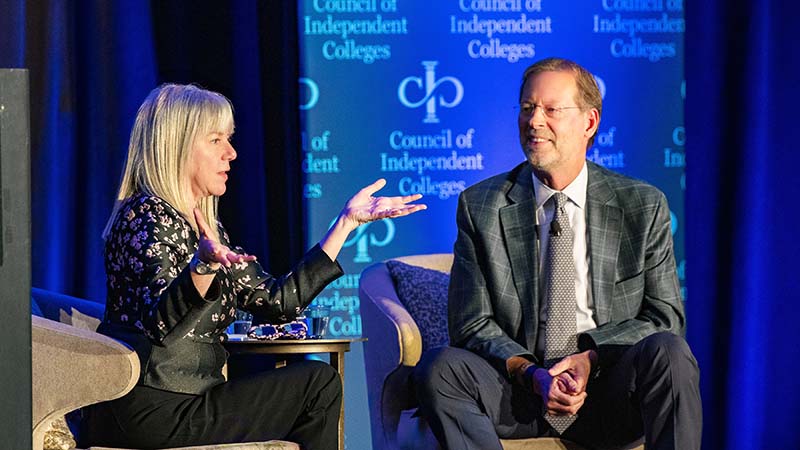
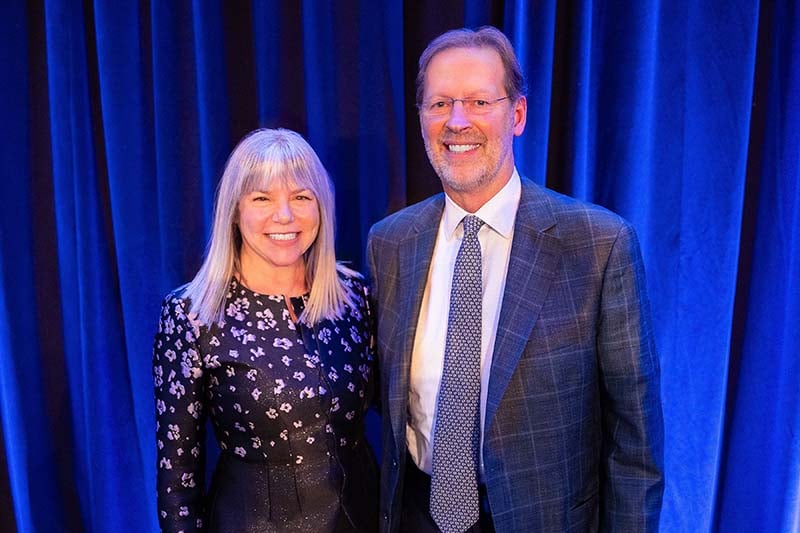
The second plenary session, “The Secret to Effective Marketing Is Understanding Its Strategic Purpose,” featured Teresa (Terry) Flannery, executive vice president and COO of CASE, who spoke about the importance of branding and marketing when addressing two important challenges: How institutions can survive and thrive through the enrollment cliff; and how to address public opinion and faltering confidence in higher education. Flannery discussed the “Four Ps of Marketing” (price, product, place, promotion) and the importance of differentiating an institution from competitors. Marketing should focus as much on the stories not being told and convey one voice or message. The basic message should be thought of as a song: the tune remains the same throughout, but the verses will resonate differently with different audiences.
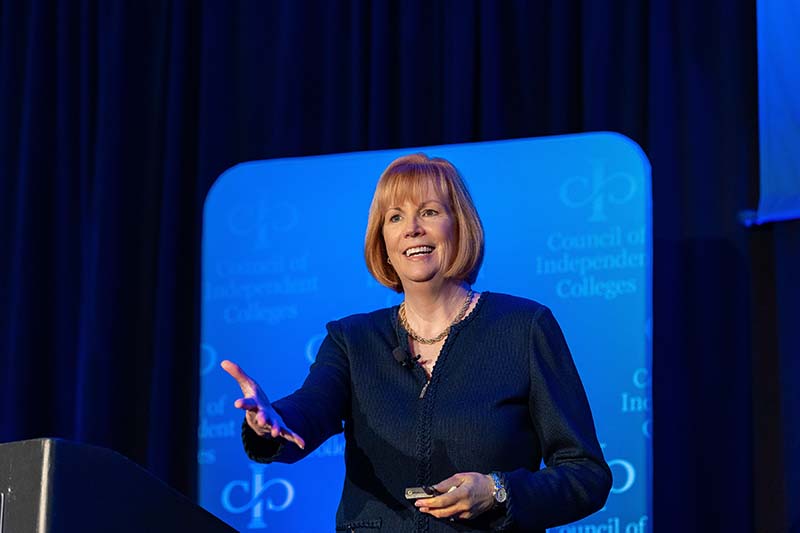
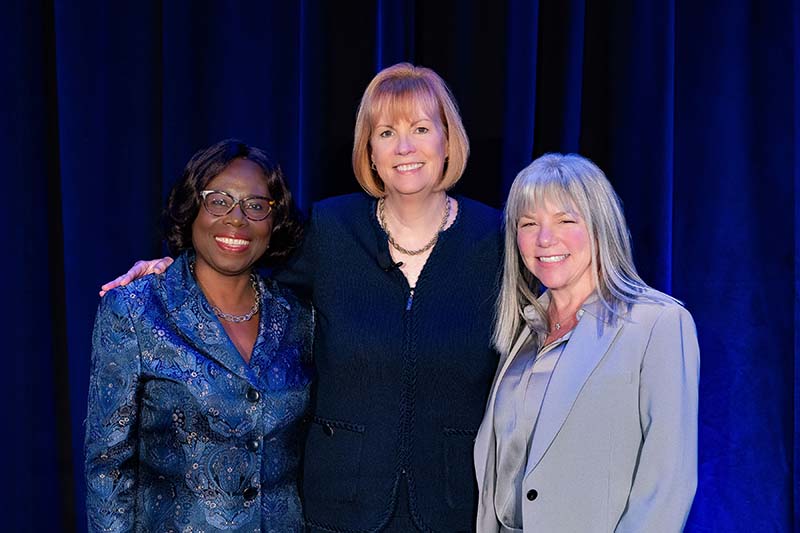
Briefs from the Field was a new offering at the Institute. The panel featured Paulette Granberry Russell, president of the National Association of Diversity Officers in Higher Education (NADOHE); Vern Granger, director of the Office of Undergraduate Admissions at the University of Connecticut and immediate past Chair of the National Association for College Admission Counseling (NACAC); and Barbara K. Mistick, president of the National Association of Independent Colleges and Universities (NAICU). It was moderated by CIC President Marjorie Hass. Panelists discussed the status of policy and practice in admissions and campus programming in the aftermath of the Supreme Court ruling on affirmative action. Although the decision felt like a shock to some, panelists assert that many institutions were expecting it and even preparing for it. They emphasized that students can still talk about their life experiences in their application essays, and admissions offices can and should still use this as a criterion. However, the safety of students must be university-wide and prioritized.
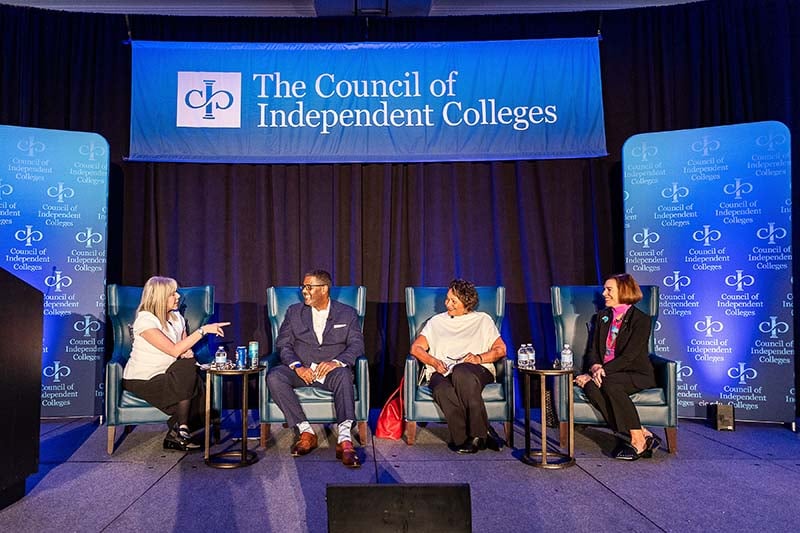
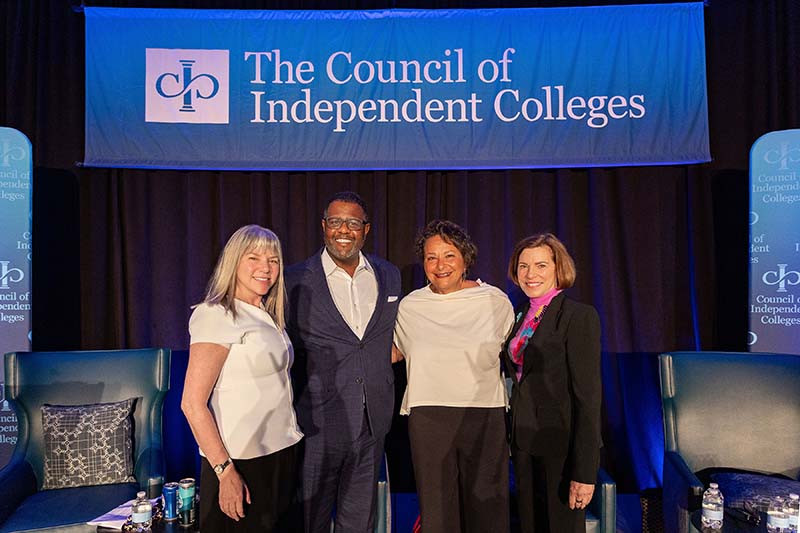
The closing plenary session, “Burnout Culture in Academia: Where It Comes from and How We’ll Get Beyond It,” featured Jonathan Malesic, author of The End of Burnout: Why Work Drains Us and How to Build Better Lives and former faculty member. Malesic spoke about the chronic condition of burnout and what that entails. Although burnout does not have a clinical definition, researchers measure it by three dimensions: emotional exhaustion, cynicism or depersonalization, and a sense of ineffectiveness. When faculty and academic leaders are burned out, a college or university cannot accomplish its educational mission. Most advice about burnout is aimed toward the individual, but the solution is often institutional and cultural. Malesic suggests that colleges and universities try to “do less” and keep narrow missions to maintain sustainability while simultaneously improving conditions for employees. They must understand the faculty (patterns of satisfaction and dissatisfaction, motivations and vocations, and what they feel they’ve been promised), and identify any areas of mismatch between expectations and perceived reality. He also suggests favoring values clarification over strategic planning to recognize good work and show more compassion for all.
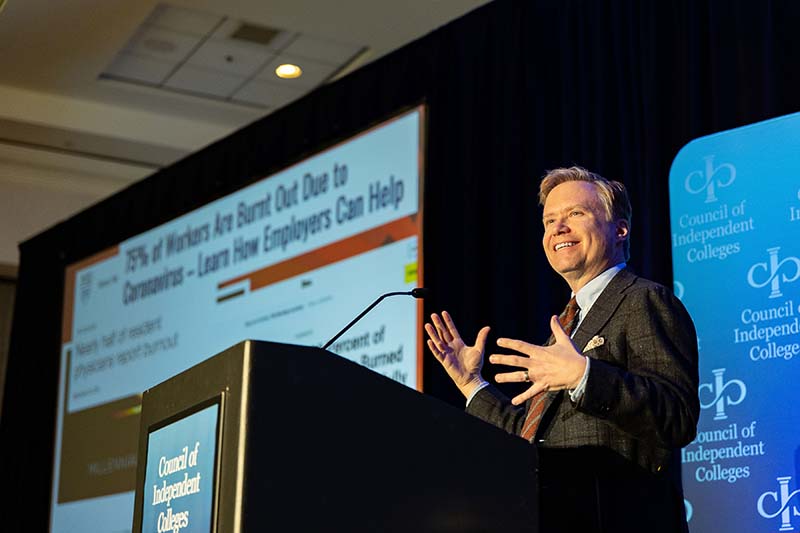
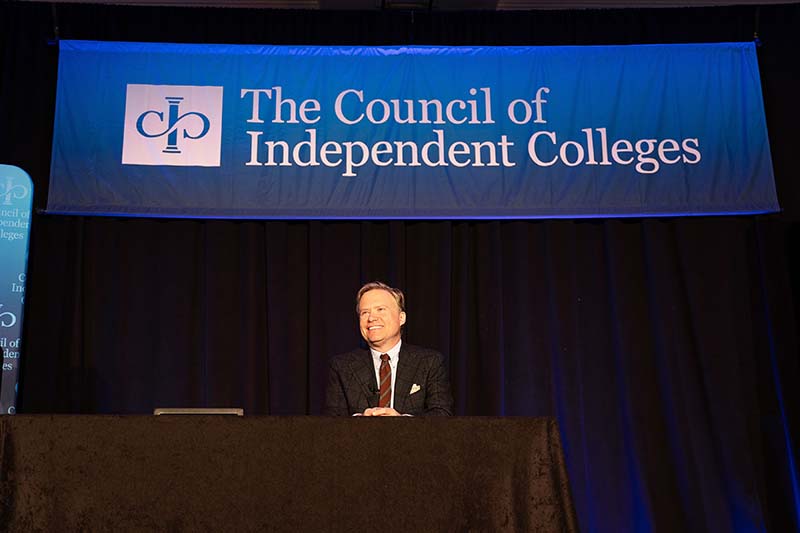
Concurrent Sessions and Interactive Seminars
The Institute for Chief Academic Officers offered many engaging concurrent sessions, including “Artificial Intelligence: What We Know and Planning for the Future,” “Mission and Institutional (In)Stability,” “Telling Difficult Stories about Your Institution and Your Community,” “A Model Approach to Full-Scale Handbook Revision,” and “Your Employee Value Proposition: Revitalizing Higher Education Recruitment and Retention.” Some of these sessions were tracked based on the roles invited. Chief academic officers could attend “Designing Effective Faculty Load Models,” “Identifying, Recruiting, and Retaining Quality Faculty through a Lens of Inclusive Excellence,” or “New Program Development, Program Assessment, Efficiency Gains, and Prioritization.” Chief advancement officers could attend “Optimizing Revenue in Higher Education: Taking Your Strategic Planning Process to the Next Level.” Chief communication officers could attend “Storytelling or Story Selling: Unmasking the Truth around Differentiation.”
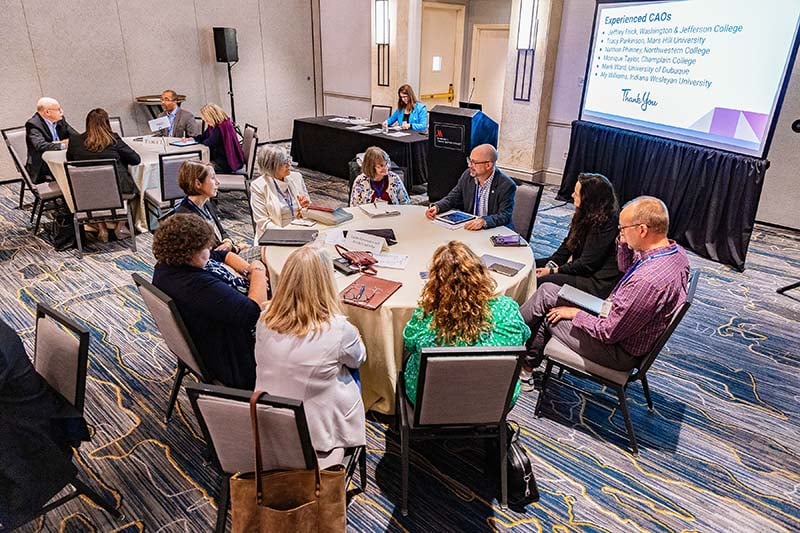


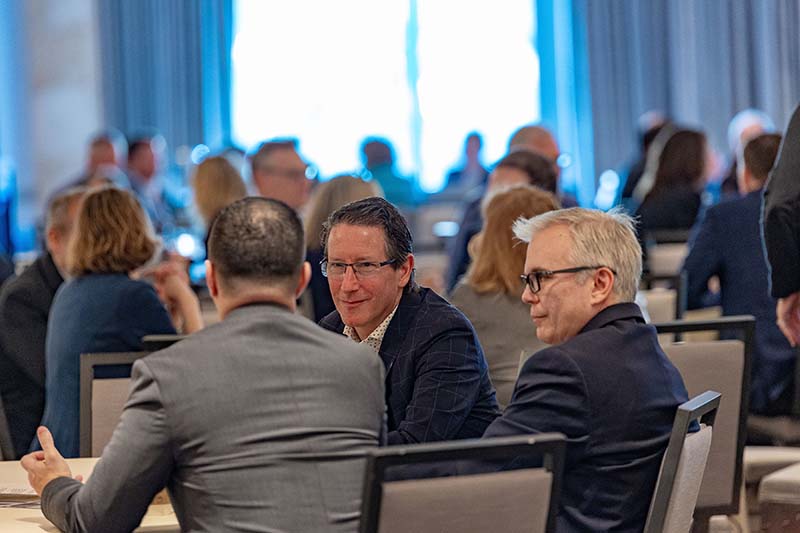
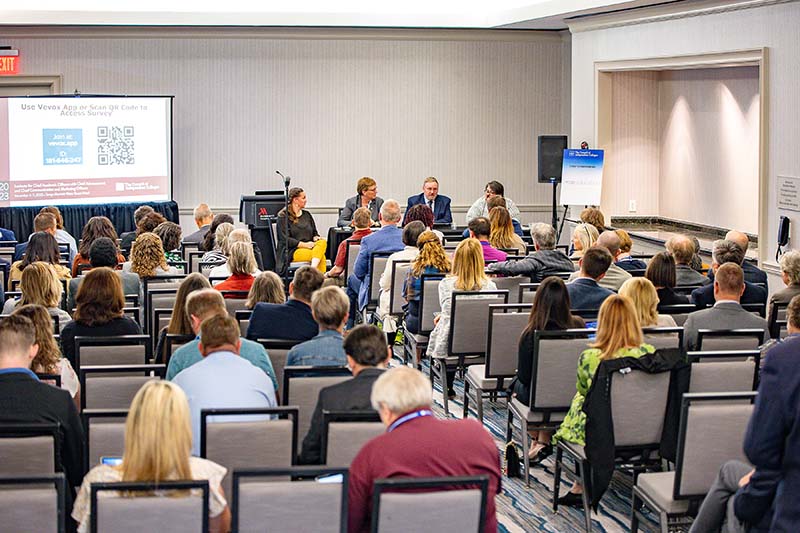
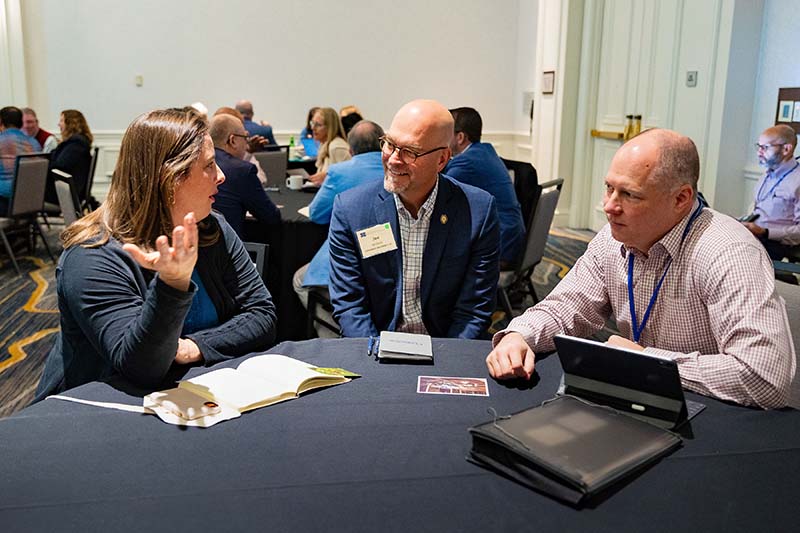

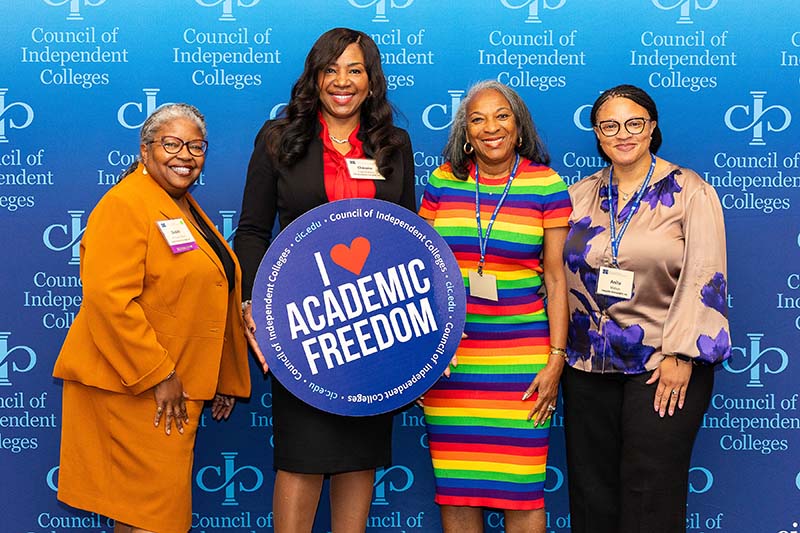
For the first time, CIC offered interactive seminars to highlight important issues that currently impact independent higher education. Designed to be practical and hands on with clear learning outcomes, these seminar topics included “College Student Mental Health: Trends and Data-Driven Strategies for Support,” “Institutional Mergers and Partnerships: Assessment and Execution,” “Managing Change and Disruptive Innovation,” “Utilizing Data for Effective Storytelling,” “When to Speak and What to Say: Effective Crisis Communications and Issues Management for Campus Leaders,” and “Leading and Communication During Crises.”
